Samsung Galaxy A36 5G vs Galaxy A16 5G: Does double the price mean double the phone?
We may earn a commission if you make a purchase from the links on this page.
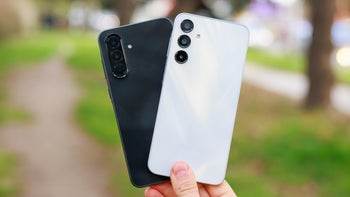
Intro
The Galaxy A36 5G, released back in March 2025, has already bolstered the ranks of Samsung's mid-ranger lineup in the US, warming up the market for the Galaxy A56's arrival in the near future.
We've got minor design changes and some hardware upgrades, but overall, the Galaxy A36 isn't that different from the Galaxy A35.
How does it compare against the Galaxy A16 5G, which is Samsung's most affordable current smartphone in the US at just $199? What's common with the $399 Galaxy A36, and what's different?
Galaxy A36 vs Galaxy A16 differences:
| Galaxy A36 5G | Galaxy A16 5G |
|---|---|
| Smoother 120Hz screen refresh rate | 90Hz maximum screen refresh rate |
| Unified camera island | Separate camera lens design |
| Gorilla Glass Victus+ at the front and at the back | Plastic back |
| Thinner at 7.4mm | Slightly thicker at 7.9mm |
| Snapdragon 6 Gen 3 | Exynos 1330/MediaTek Dimensity 6300 |
| 6GB RAM | 4GB RAM |
| Optical fingerprint scanner | Physical fingerprint scanner embedded in the power button |
| 5,000mAh battery | 5,000mAh battery |
| Much faster 45W wired charging | Slower 25W wired charging |
| One UI 7, Android 15, six years of software support | One UI 6.1, Android 14, six years of software support |
| Awesome Intelligence AI features | No native built-in AI features as of now |
Read more:
- Samsung Galaxy A16 5G Review: Some improvements, but one red flag remains
- Galaxy A36 and A56 expected features, prices, specs, and upgrades
- Samsung Galaxy A16 5G vs Galaxy A15 5G: What's new?
- Samsung Galaxy A36 5G vs Galaxy A35 5G: Main differences to expect
- Samsung Galaxy A36 5G vs Galaxy S25: Can the mid-ranger potentially stand a chance?
- Samsung Galaxy A36 5G vs Galaxy S24 FE: Main differences to expect
Design and Display
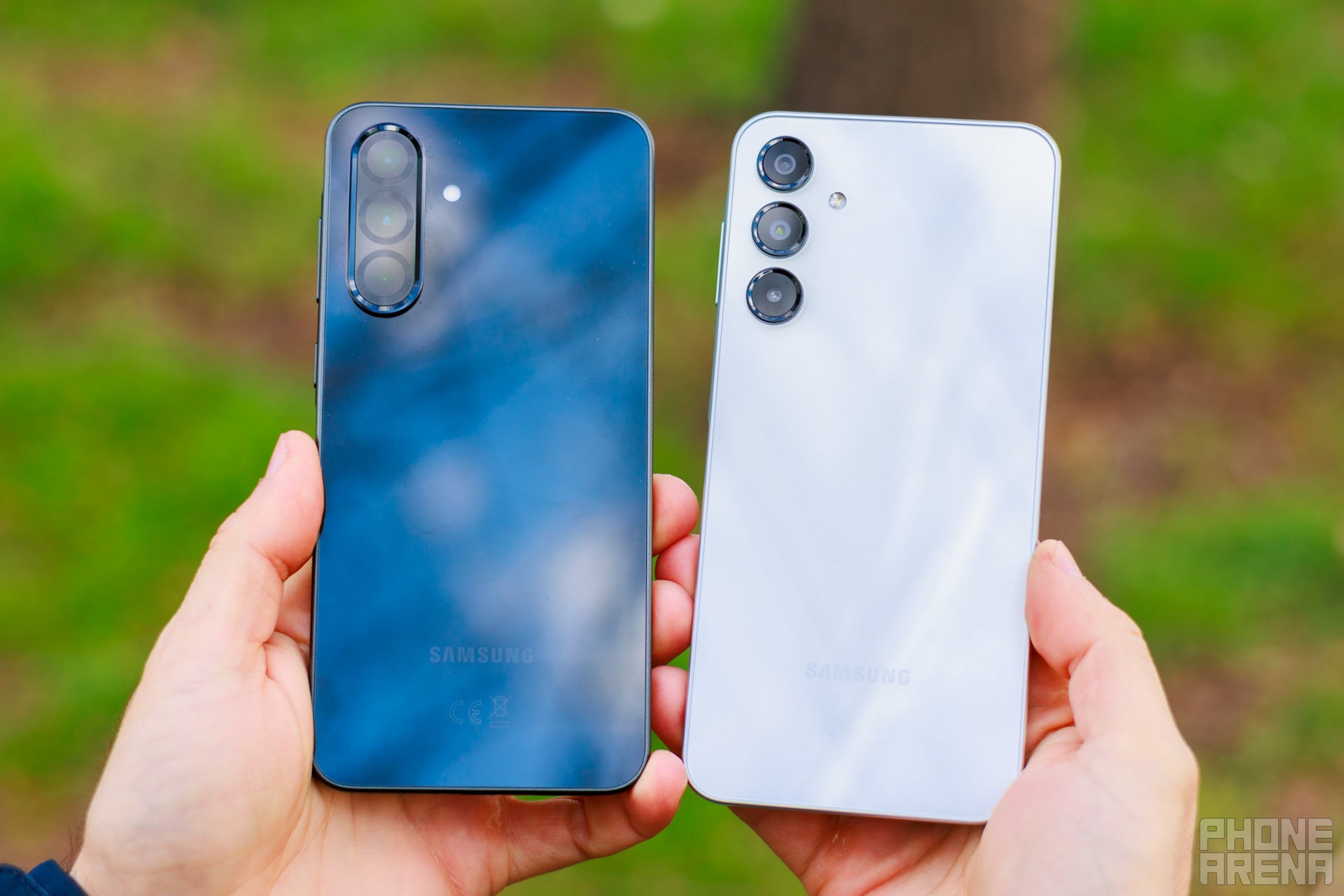
The Galaxy A36 feels more premium, but both flaunt the core Samsung design (Image by PhoneArena)
The inherent Samsung design language oozes from both the Galaxy A36 and the Galaxy A16––just one look, and you know you're looking at two value-oriented Samsung devices.
Both feature a flat design language, but overall, it's the Galaxy A36 that feels slightly more premium as the build quality itself is slightly different. The Galaxy A36 features a plastic frame, but both the front and the back of the phone are made of Gorilla Glass Victus+.
At the same time, the Galaxy A16 utilizes more plastic in its build. There's a punch-hole at the front of the Galaxy A36, facilitating the selfie camera, while the Galaxy A16 brings us years back with a retro-looking V-shaped notch.
The Galaxy A36 is thinner than its predecessor and measures 7.4mm, making it decently compact. The Galaxy A16 is slightly taller at 7.9mm, but this isn't such big of a difference in real life.
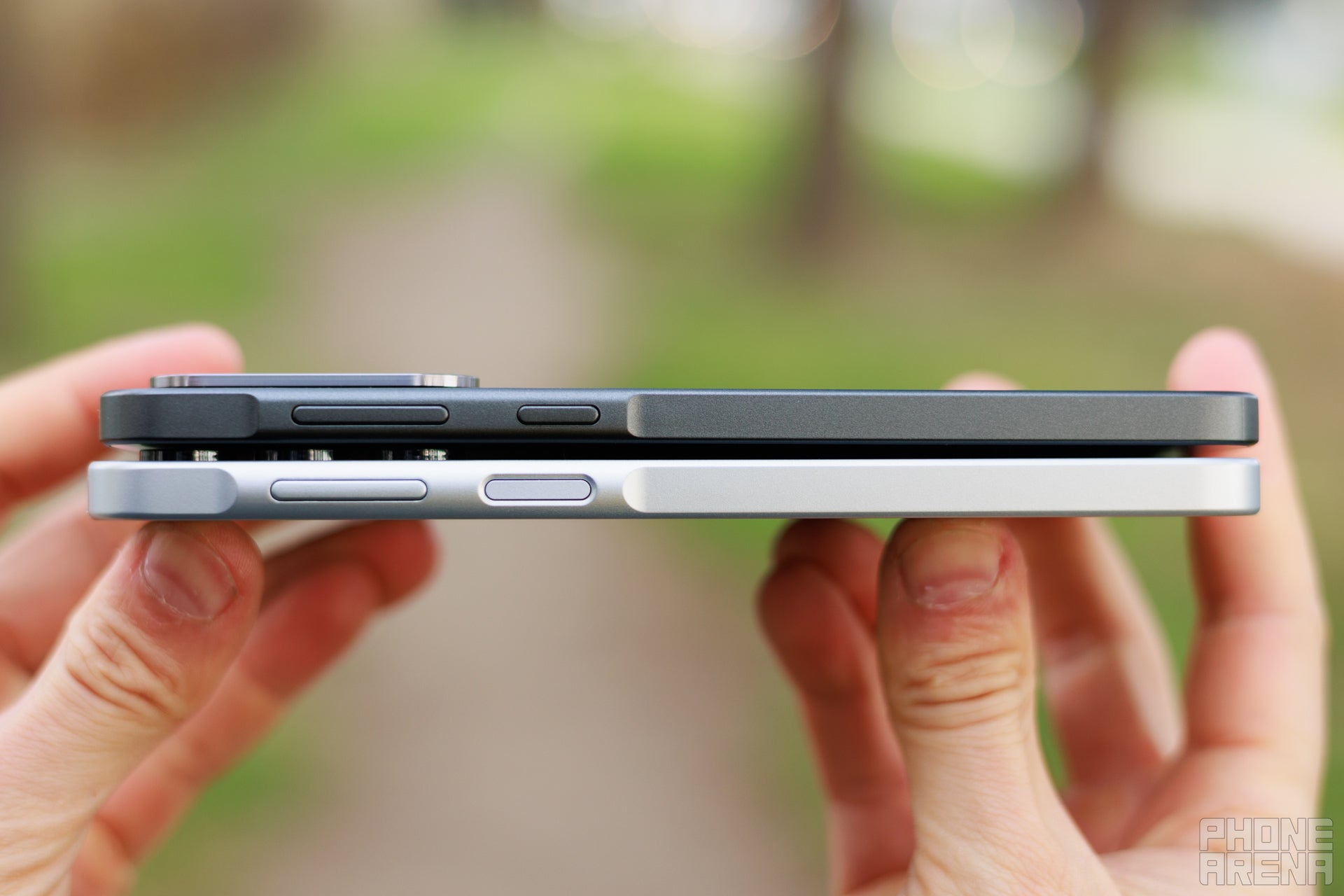
Similar sizes (Image by PhoneArena)
The most considerable change between the two phones lies at the back, where Samsung uses a unified camera island with all three cameras. This camera strip sticks out among the rest of Samsung's phones, which are all employing separate camera lenses.
The Key Island design feature, which houses the power and volume keys on the right-side of the device, is present on both the Galaxy A16 5G and Galaxy A36 5G. It is now a signature feature of Samsung's Galaxy A range of devices, making them instantly recognizable.

Even the super-affordable Galaxy A16 has a rather decent display (Image by PhoneArena)
The Galaxy A36 comes with a 6.7-inch Super AMOLED screen, a slight increase over the Galaxy A35's 6.6-inch display. It features 120Hz dynamic refresh rate dynamic refresh rate, switching between 60 and 120Hz. In comparison, the Galaxy A16 5G is slightly less impressive. It also features a 6.7-inch FHD+ screen, but it only goes to 90Hz, so slightly less smoother.
According to our in-house display tests, it's the Galaxy A36 that's unsurprisingly the better pick. It features higher peak brightness and better color accuracy, making it the better overall OLED screen here.
In terms of biometrics, the Galaxy A36 boasts an optical in-display screen fingerprint scanner, whereas the Galaxy A16 boasts a capacitive one embedded into the physical power button of the phone. Both function okay, not as fast and convenient as an ultrasonic fingerprint on a flagship Galaxy, but still do their job fairly okay.
Performance and Software
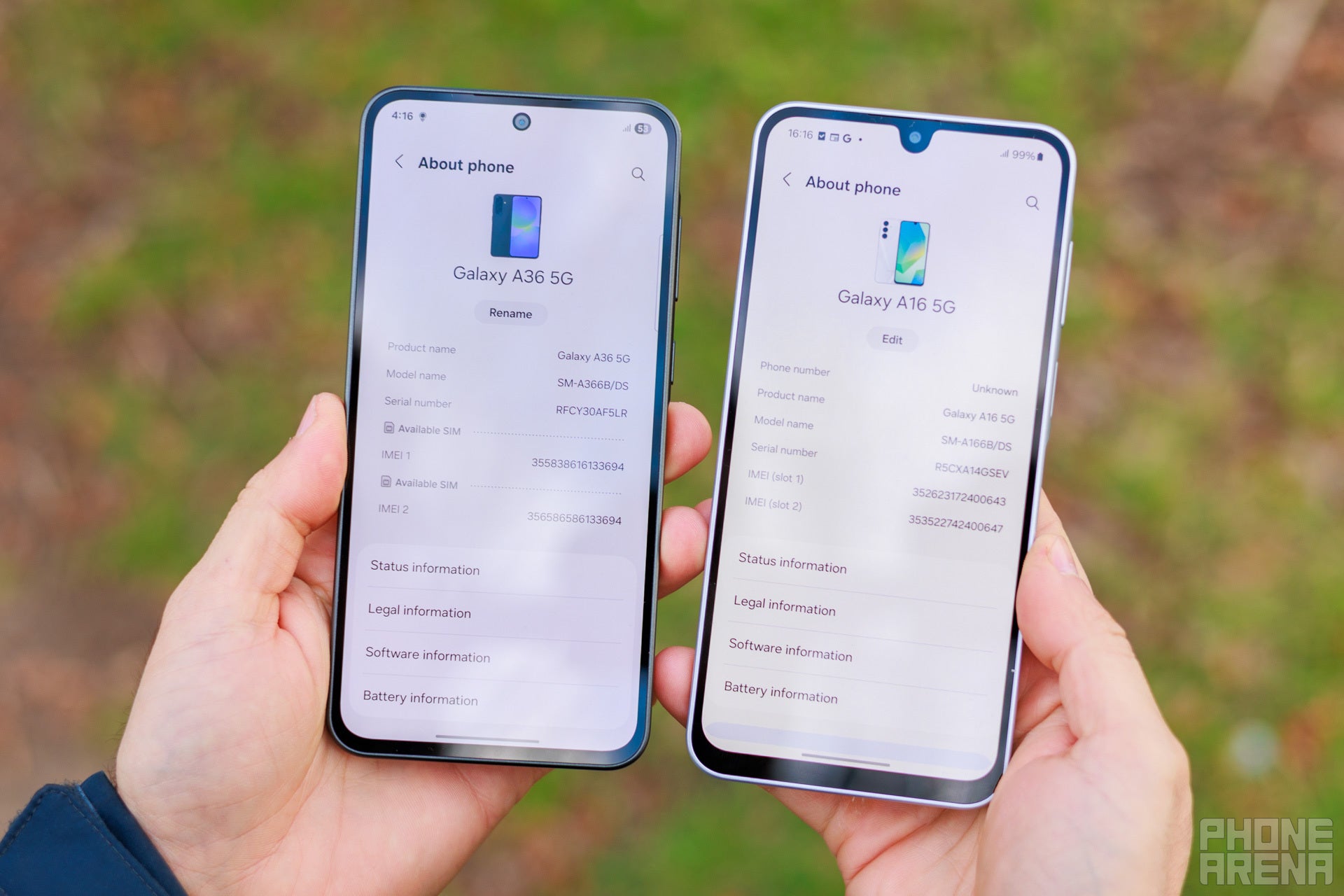
Well, the Galaxy A36 has a pretty low bar to overcome, as the Galaxy A16 is a very humble performer.
The new phone comes with the 5nm Snapdragon 6 Gen 3 chipset, which marks another major chipset change after Samsung went through MediaTek and its own Exynos chips in the past Galaxy A3x phones.
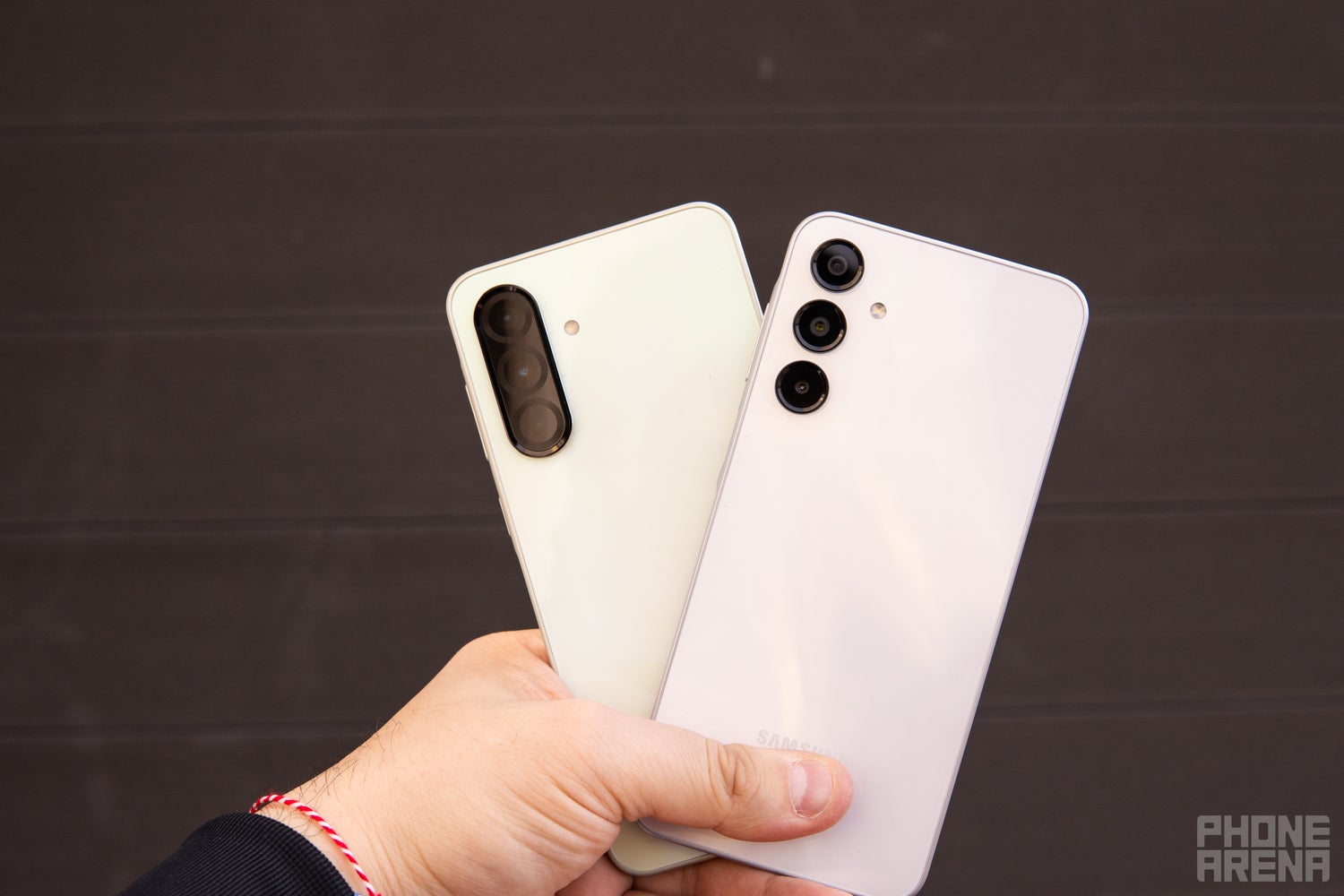
At the same time, the Galaxy A16 5G is powered by the 5nm Exynos 1330 chip, which doesn't really shine with anything in particular and is, in fact, terribly slow in both real-life scenarios and especially in synthetic benchmarks.
The stuttery performance is something no one should expect of any phone in 2025, but this is the reality of the situation with most entry-level and affordable phones like the Galaxy A16. The experience is just not good.
In a truly unsurprising manner, the Galaxy A36 triumphs in both the CPU and GPU synthetic benchmark tests. Sorry, Galaxy A16, it's just the way of the game.
CPU Performance Benchmarks:
The difference in performance is surprisingly close here, with the A16 proving to be comparable in the single-core Geekbench 6 test, but sadly lagging in the multi-core test.
GPU Performance
However, in terms of graphics performance, it's a massacre for the ultra affordable Galaxy A16––this one is just not built for gaming. The Galaxy A36 isn't a particularly potent gaming machine either, but it performs drastically better in gaming.
The Galaxy A36 is here with 6GB of RAM and starts with 128GB of storage. Meanwhile, the Galaxy A16 comes with 4GB of RAM and 128GB of storage, which is at the sanitary minimum and surely doesn't help elevate the overall performance that well.
The Galaxy A36 comes with Awesome Intelligence, which is the company's toned-down AI proposition for the mid-range market. Notably, the Galaxy A36 boasts Circle to Search and Circle to Search and Object Eraser among other features.
Samsung will deliver six years of software support to both the Galaxy A16 and the Galaxy A36, which is great to see on such affordable devices.
Camera
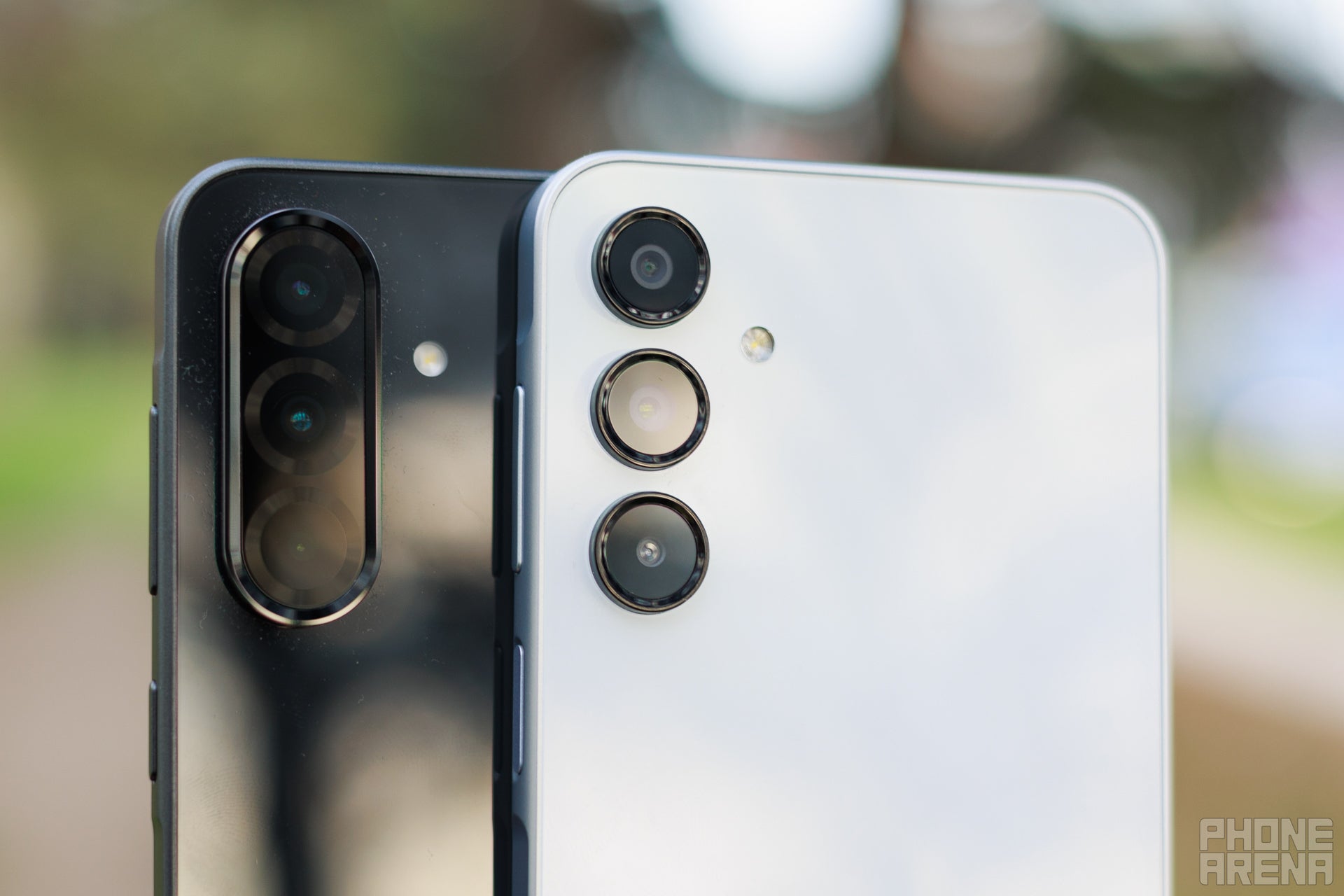
Surprisingly, the Galaxy A16 performs slightly better (Image by PhoneArena)
The Galaxy A36 comes with a 50MP main camera, an 8MP ultrawide, and sadly, a gimmicky 5MP macro camera, so mostly no changes in comparison with the Galaxy A35. At the same time, with the A16, we get a 50MP main camera, a 5MP ultrawide, and finally, a 2MP macro camera.
PhoneArena Camera Score:
Samsung has sadly changed the image-processing algorithms with the Galaxy A36, but the change wasn't for the better. Utilizing mostly the same hardware, it now ranks lower than the older Galaxy A35 in the PhoneArena Camera test. Surprisingly, this leaves the Galaxy A16 ahead with slightly better still photography and video-recording capabilities.
Main camera
The main camera on the Galaxy A16 performs slightly better. We notice a slightly more realistic color temperature, as well as slightly more natural-looking detail, whereas the Galaxy A36 is warmer and utilizes slightly more aggressive processing.
Ultrawide
The ultrawide image quality on both phones is mostly comparable, with similar image quality, dynamic range, and colors.
More Galaxy A36 vs Galaxy A16 camera samples
Video quality

As we mentioned, the Galaxy A16 surprisingly performs better in terms of video quality. It has slightly better dynamic range, which is embarrassing for the Galaxy A36. Colors are also more pleasant on the Galaxy A16, too.
Battery Life and Charging
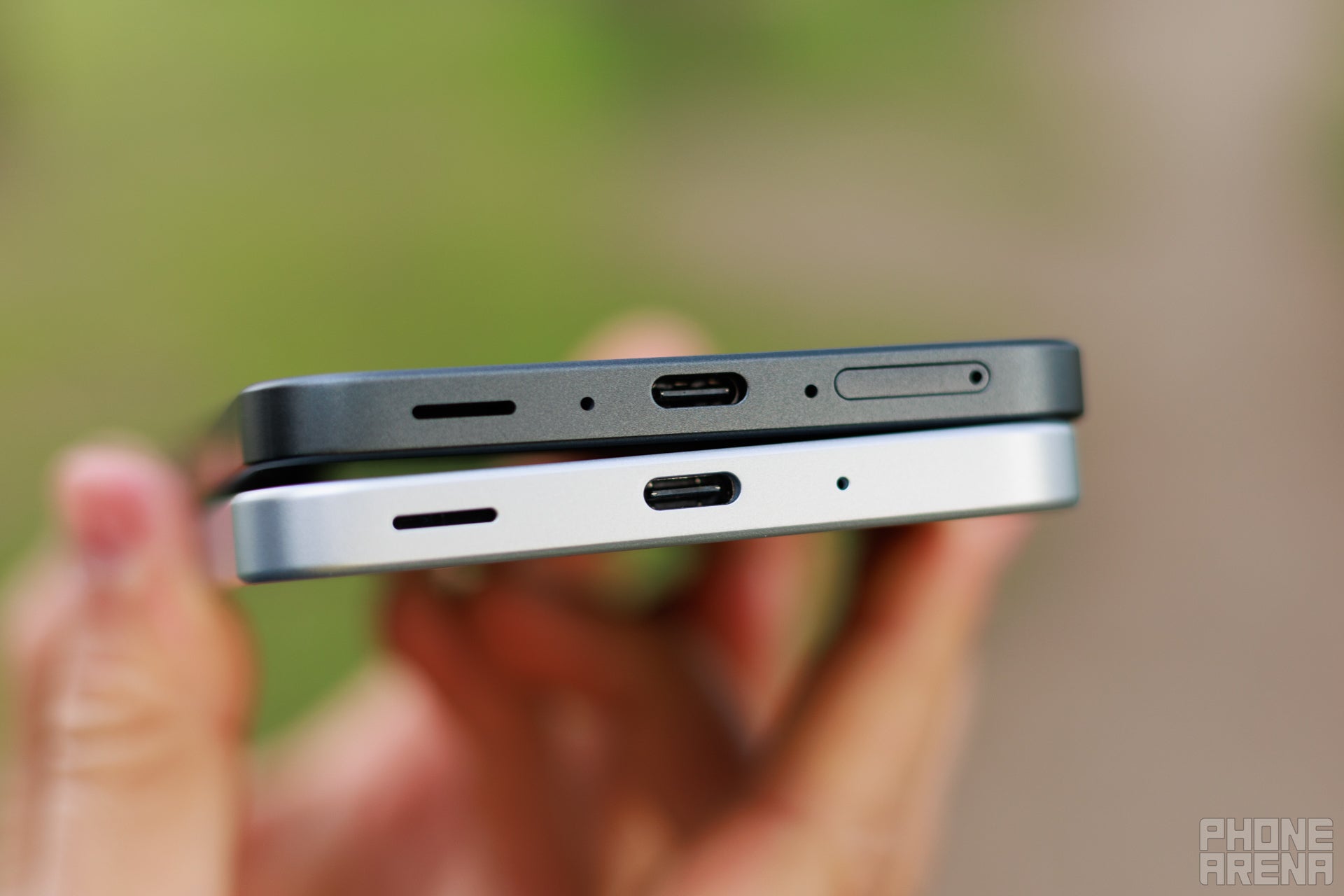
The signature 5,000mAh battery inside both (Image by PhoneArena)
Both phones have 5,000mAh batteries, which is pretty decent. It's as much as the flagship Galaxy S25 Ultra has, for example. In terms of battery life, we get slightly better average battery life on the Galaxy A36 in the PhoneArena custom battery tests, which are conducted at 200 nits of brightness.
The PhoneArena browsing test, which aims to simulate a standard web browsing workflow, reveals that we get significantly better battery life on the newer Galaxy A36, while the Galaxy A16 isn't performing too good. In our video streaming and 3D gaming tests, however, the Galaxy A16 takes two back and lasts longer than the Galaxy A36.
PhoneArena Battery and Charging Test Results:
Charging-wise, the Galaxy A36 surprisingly scored 45W wired charging, which is just as fast as the flagship Galaxy S25 Ultra, while the Galaxy A16 boasts slower 25W wired charging (matching the standard galaxy S25 flagship). Thanks to this, the Galaxy A36 charges half an hour faster in comparison.
Specs Comparison
How will the Galaxy A36 5G vs Galaxy A16 5G specs compare? Here's a summarized table:
| Galaxy A36 5G | Galaxy A16 5G | |
|---|---|---|
| Size, weight | 162.9 х 78.2 х 7.4mm | 164.4 x 77.9 x 7.9 mm |
| Screen | 6.7" Super AMOLED FHD+ 120Hz | 6.7" Super AMOLED FHD+ 90Hz |
| Processor | Snapdragon 6 Gen 3 (5nm) | Exynos 1330 (5nm) |
| RAM, Storage | 6GB/128GB 6GB/256GB | 4GB/128GB microSD slot |
| Cameras | 50MP main 8MP ultrawide 5MP macro 12MP front | 50MP main 5MP ultrawide 2MP macro 13MP front |
| Battery | 5,000mAh | 5,000mAh |
| Charging | USB-C 45W wired | USB-C 25W wired |
Summary
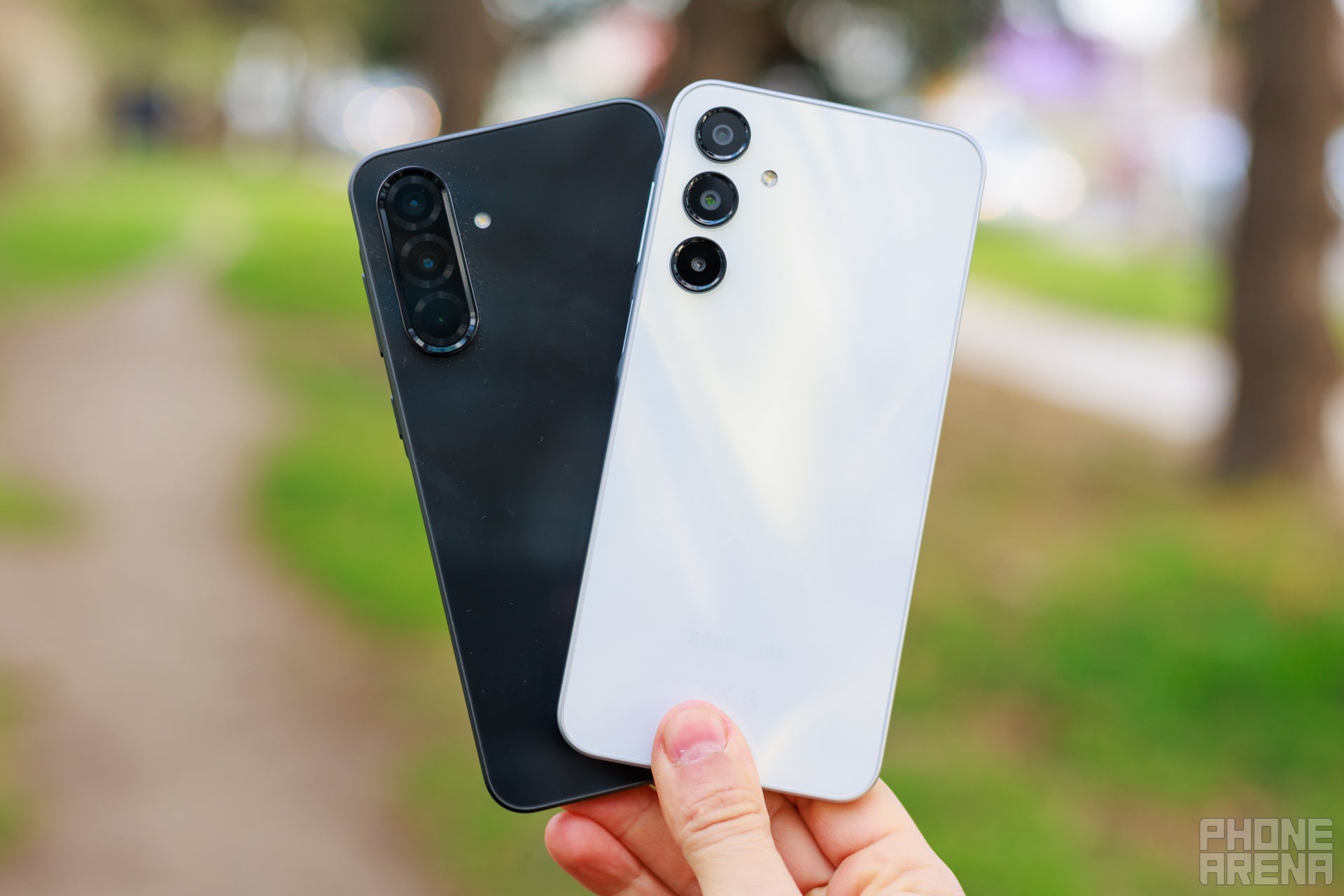
Despite the lackluster camera, you should probably go with the Galaxy A36 (Image by PhoneArena)
Certainly, the Galaxy A36 5G is the better and more complete phone here, not only because it sits higher in the hierarchy, but because Samsung has put better hardware inside, which will surely ameliorate the user experience. It's also slightly more future-proof.
However, the price difference could be the major distinguishing factor.
The Galaxy A16 5G is a $200 phone, making it an appealing pick for people that just want a handset best suited for light use. The Galaxy A36 5G, on the other hand, starts at $400, and it's a bit more capable in comparison.
Is it twice as good as its pricing would suggest? Well, no. Sure, it has significantly better performance, better battery life, and slightly faster charging, but the camera performance isn't very reassuring. Overall, it's a toss-up between the two phones, but you should probably go with the Galaxy A36.
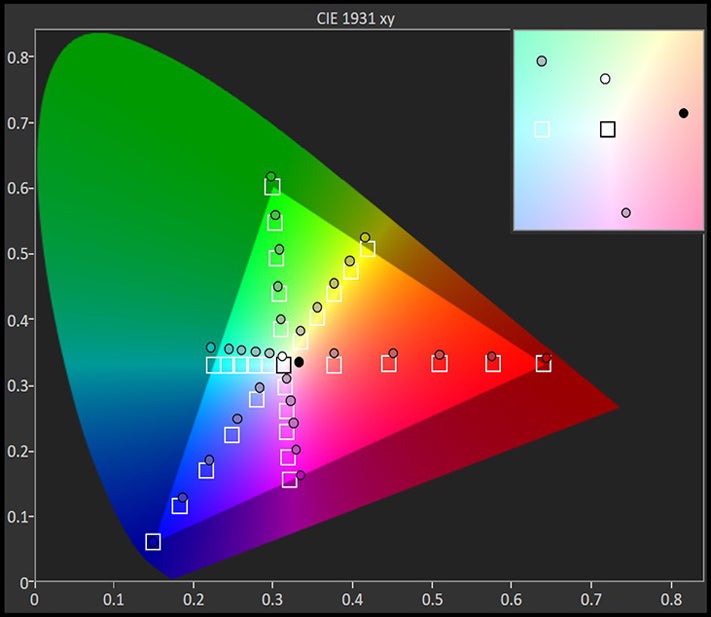







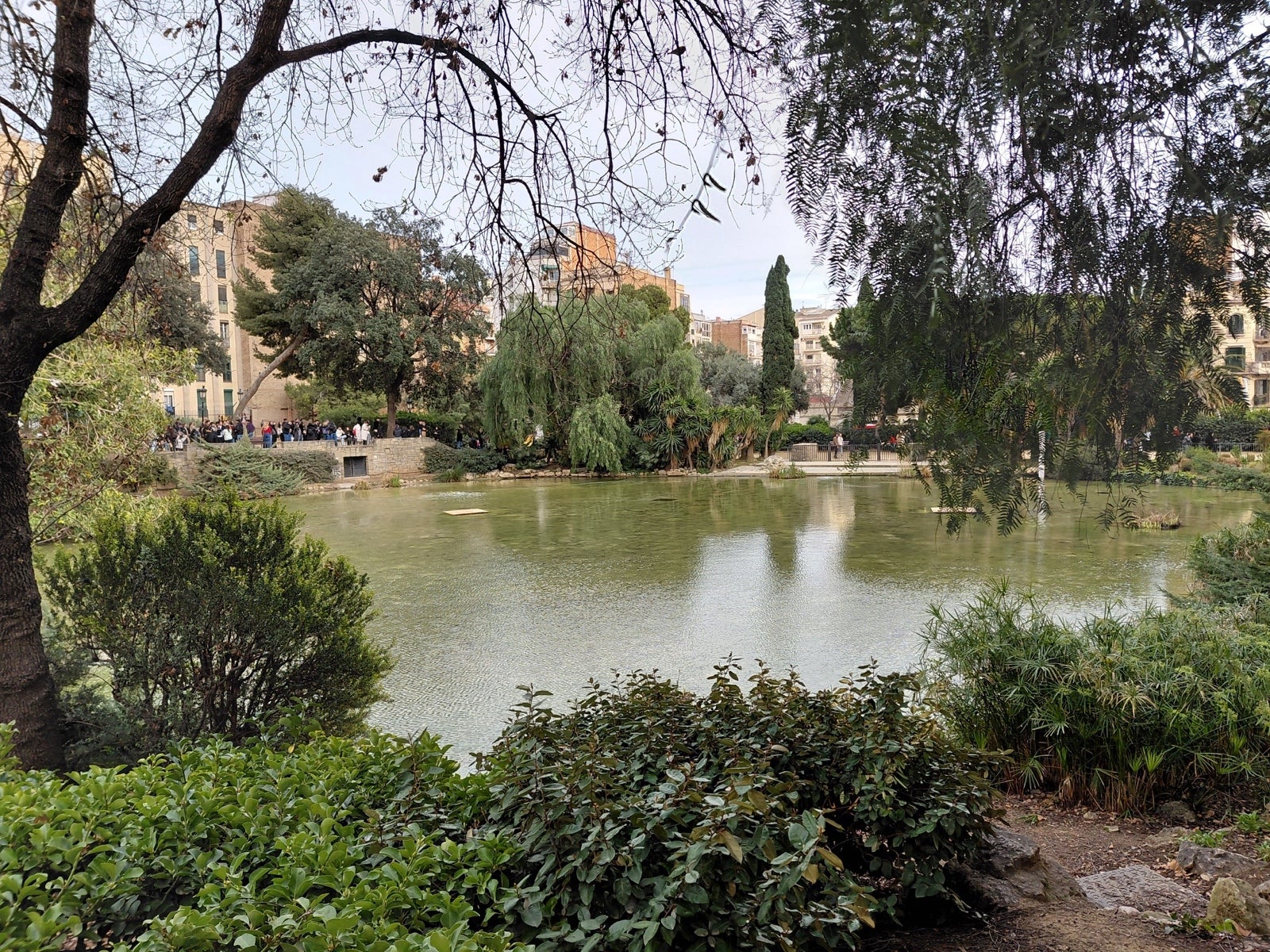










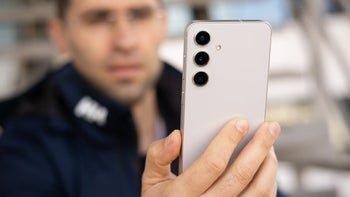

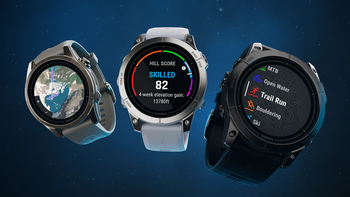







Things that are NOT allowed: